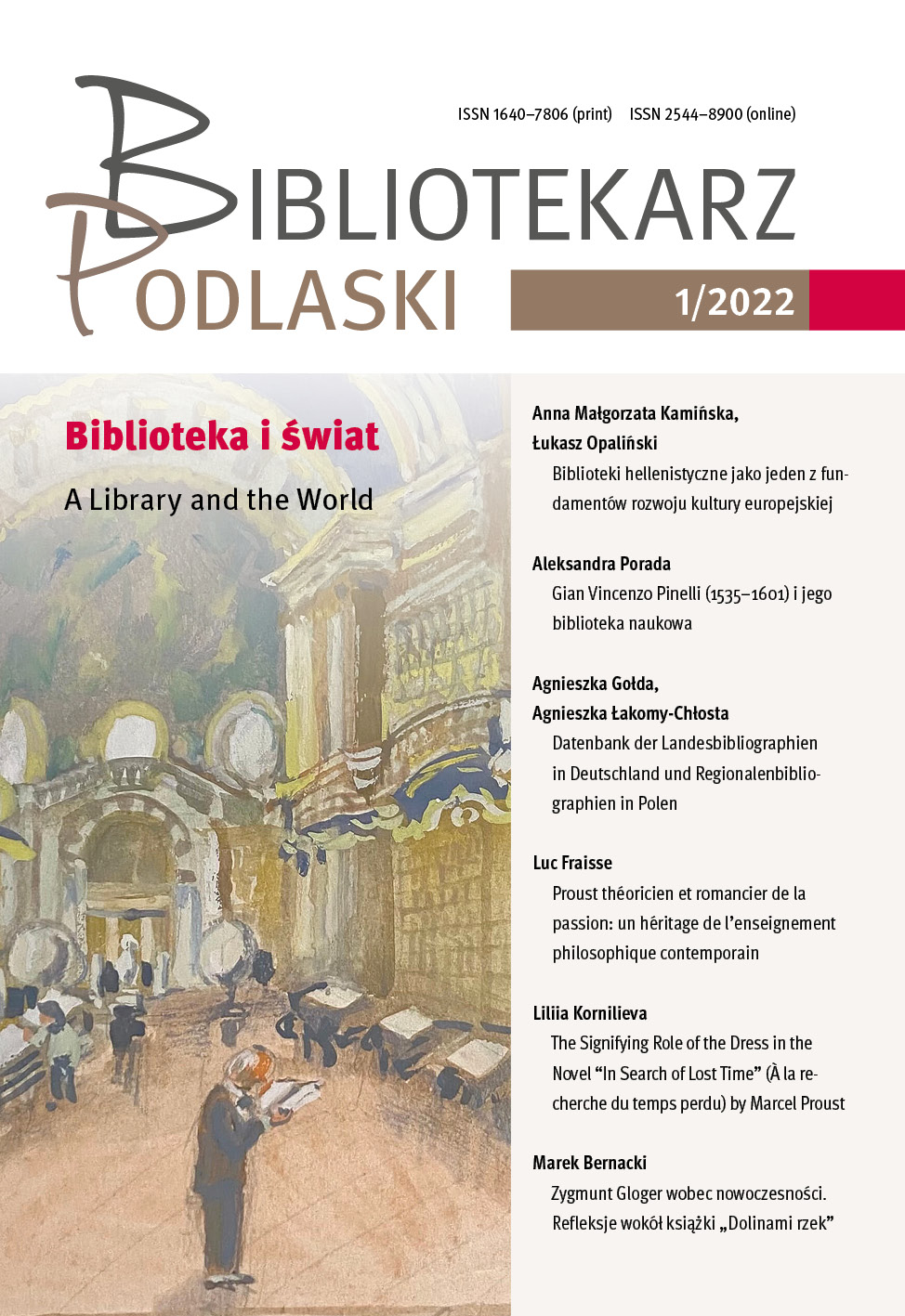Abstract
Proust, who describes jealousy, is a theorist of passion. He mastered the philosophical heritage he had absorbed during his hard and exhaustive studies. Even if, in the past, passion itself has not played a significant role in the thought of philosophers, Proust finds in their writings a considerable number of principles.
First, we will see how Proust deconstructs the experience of passion, and that be doing so he resembles a clinician who analyzes his subject. Then, we shall see how Proust reaches his conclusions and creates a philosophy of passion; finally, we shall examine a rarely studied aspect in this field: how passion contributes to artistic creation, and, in particular, the process of writing a novel.
References
Brunet É., Le Vocabulaire de Proust, Genève-Paris, Slatkine-Champion, 3 vol., 1983.
Citati P., La Colombe poignardée. Proust et la «Recherche», Paris, Gallimard, 1997.
Deleuze G., Proust et les signes, Paris, Presses universitaires de France, 1964.
Descartes R., Des passions de l’âme, 2e partie, article 74 ; voir Œuvres philosophiques, textes établis, présentés et annotés par Ferdinand Alquié, Paris, Classiques Garnier, t. III (1643-1650), 1973.
Henry A., Marcel Proust – théories pour une esthétique, Paris, Klincksieck, 1981.
Voir Correspondance de Marcel Proust, établie, annotée et préfacée par Philip Kolb, Paris, Plon, 21 vol., 1970-1993.
Articles published in the “gold open access” mode on the basis of a non-exclusive license agreement between the publisher and the author. Permitted use:
- the publication may be read and stored on any device,
- the publication may be cited (with obligatory reference to the author, the title of the text, as well as the full title, bibliographic address of the issue and page of the journal)
The editorial team of “Bibliotekarz Podlaski” implements an open access policy by publishing materials in the form of the so-called Gold Open Access. From volume 42 (issue 1/2019), the journal is available under the Creative Commons license (Attribution – ShareAlike: CC BY-SA).
The key declarations of the Open Access and Open Science movement, which we fully support, are available on the CEON Open Science website.
COPYRIGHT:
The editorial team of “Bibliotekarz Podlaski” implements an open access policy by publishing materials in the form of the so-called Gold Open Access. The journal is available under the Creative Commons license – Attribution – ShareAlike 4.0: International: CC BY-SA 4.0).
The key declarations of the Open Access and Open Science movement, which we fully support, are available on the CEON Open Science website.
“Bibliotekarz Podlaski” allows its readers to read, download, copy, distribute, print, search and link to the full content of articles. We enable full, immediate, unlimited (both in a territorial, temporal and technical sense) open access to all published content, in accordance with the principle that freely available research increases and accelerates the global development of science and the exchange of knowledge.
The editorial team of “Bibliotekarz Podlaski” encourages authors to place articles published in the journal in open repositories (after the review or the final version of the publisher), provided that a link to the journal’s website is provided.
The journal does not charge the authors any fees for accepting and publishing their texts.

